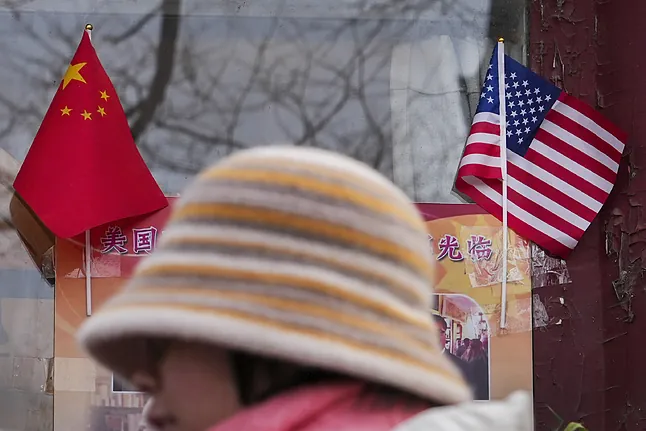Just hours after US President Donald Trump signed an executive order to increase tariffs on Chinese imports from 10% to 20%, Beijing, as they had warned, has retaliated by targeting American agriculture.
Chinese authorities have swiftly retaliated on Tuesday to Trump's latest move in the trade war: increases ranging from 10% to 15% on tariffs for a variety ofAmerican agricultural and food products, and additionally placing 25 companies under export and investment restrictions.
The announcement came after the implementation of the latest trade blow by the Trump administration, which justified it, along with the 25% tariffs on goods imported from Canada and Mexico, by claiming that China was not taking measures to stop the flow of fentanyl into US territory.
According to the recent announcement from China's Ministry of Commerce, Chinese authorities will now impose an additional 15% tariff on chicken, wheat, corn, and cotton from the US, and an additional 10% tax on imports of soybeans, sorghum, pork, beef, aquatic products, fruits, vegetables, and dairy products.
"The unilateral tariff measures by the United States seriously violate the rules of the World Trade Organization and undermine the basis of economic and trade cooperation between China and the US," the ministry said in a statement. "China will firmly safeguard its legitimate rights and interests," it added.
Despite a decrease in imports since 2018, China remains the largest market for American agricultural products. During the first phase of the trade war, Beijing imposed tariffs of up to 25%. Meanwhile, the US, after Brazil, was the second-largest supplier of agricultural imports to China last year, with a 12.8% share.
In early February, when Washington introduced its first round of tariffs, imposing a 10% tax on all Chinese imports, Beijing responded with a broad package of punitive tariffs ranging from 10% to 15% on various American imports, including coal, crude oil, and agricultural machinery.
To justify the new trade war against Beijing, the White House argued that the Chinese regime has not implemented sufficient measures to stop the supply of synthetic opioids to the United States, which poses an "unusual and extraordinary threat" to the national security, economy, and foreign policy of the country.
Fentanyl began to flow from China to the US a decade ago. Initially, it was sent directly through international mail. When Beijing and Washington started taking action in 2019 to curb this regular flow, another alternative route opened. Instead of shipping final fentanyl shipments - in pills, tablets, and powder - directly to the US, international drug traffickers and Chinese companies found Mexican cartels in Jalisco and Sinaloa as intermediaries.
Now, essential chemical precursors for manufacturing fentanyl leave China for Mexico, where the drug traffickers then introduce the drug across the US border in food packages or toy bags.
During Joe Biden's tenure in the White House, the US government has tried to work with Chinese authorities to combat fentanyl trafficking. There have been significant pressures from Washington on Beijing to pursue companies that ship chemical precursors to Mexico. The US-China Antinarcotics Working Group was launched last year.
